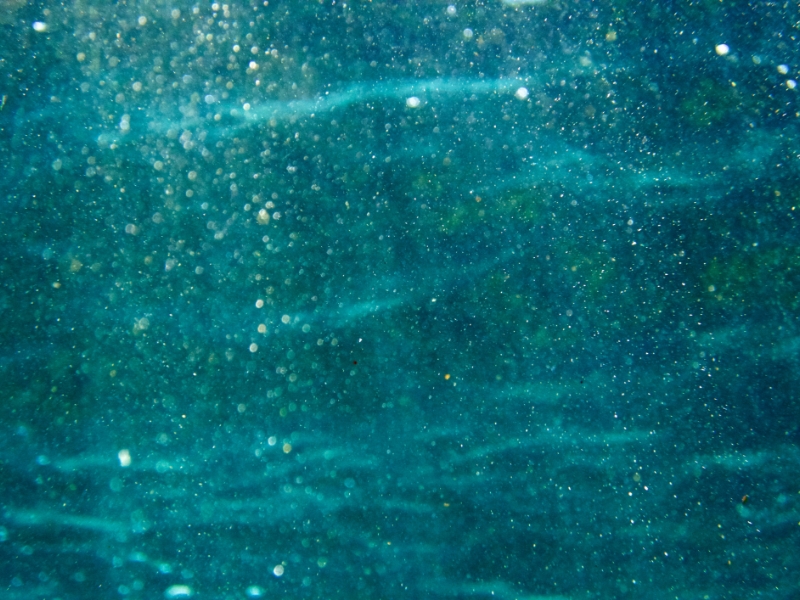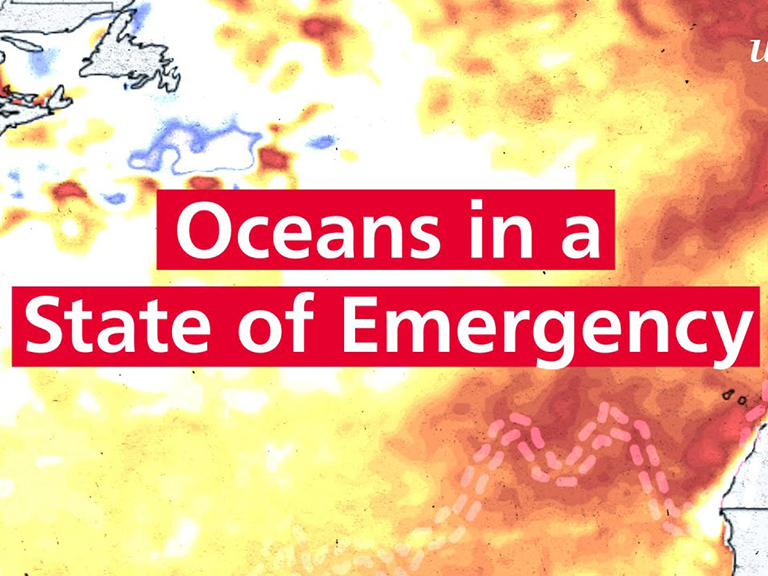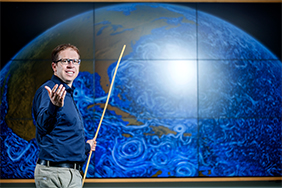United Nations Ocean Conference 2025
The ocean is at its limit – but there is still hope
Heating, deep-sea mining, vulnerable ecosystems: In this interview, climate researcher Thomas Frölicher explains what is going on with the ocean, what glimmers of hope there are and why this is important for Switzerland.

Thomas Frölicher: It’s the worst it’s ever been. Our studies from recent years clearly show: The ocean is warming rapidly and marine heatwaves are becoming increasingly common. In the last month alone, almost a quarter of the ocean’s surface has been affected by heatwaves. The global ocean temperature has broken the previous year’s record every year for the past eight years in a row, and is expected to set a new record again this year. And it’s not just that the ocean is getting warmer – rising CO2 levels are also making them more acidic, and warming is also lowering their oxygen levels. This also affects ecosystems, such as fish and warm water corals. Last year, 84 percent of coral reefs were affected by bleaching – the fourth mass coral bleaching event. Moreover, sea levels continue to rise at a rate that has doubled over the past 20 years. We are very clearly heading in the wrong direction.
That sounds very gloomy. You were at the UN Ocean Conference last week. Is the global community doing something about it?So far, I've talked about the effects of climate change on the ocean. Of course, there are also other major challenges that were discussed at length at the UN conference, such as increasing plastic pollution, overfishing, and the decline in marine biodiversity. To counter these developments, 19 countries used the conference to ratify the High Seas Treaty. This agreement is the first to establish legally binding rules for the protection of the high seas, i.e. those two thirds of the ocean that lie outside national territorial waters. Fifty countries have already ratified the agreement at this point. Switzerland also supports the agreement. So it looks like the agreement will actually enter into force, which is a huge success for international marine conservation.
Subscribe to the uniAKTUELL newsletter

Discover stories about the research at the University of Bern and the people behind it.
The second major topic was deep-sea mining for rare earth elements such as cobalt and nickel. So far, 37 countries, including Switzerland, have announced their support for a moratorium on such activity. However, there are important countries, such as the US, that do not support this policy and have already announced their intention to engage in deep-sea mining. It is unclear what will happen next, although the science clearly supports the implementation of the moratorium.
“50 countries have already ratified the High Seas Treaty. As a result, it will enter into force soon. This is a huge success.”
Thomas Frölicher

Deep-sea mining is harmful to fragile deep-sea ecosystems and can cause irreversible damage. Moreover, we know less about the deep sea than we do about the surface of the moon. To date, only about 0.001 per cent of the deep sea has been directly observed – using cameras or submersible vehicles. We therefore know very little of what's in the deep seas and the species that inhabit them.
About the person

Thomas Frölicher
is a full Professor of Climate and Environmental Physics, and was part of the Swiss delegation at the UN Ocean Conference. He studied Environmental Sciences at ETH Zurich and received his doctorate in physics from the University of Bern. He then worked as a postdoc at Princeton University in the US for several years. In 2019, he was awarded the Theodor Kocher Prize by the University of Bern. He is a member of the Oeschger Centre for Climate Change Research and, as the lead author, has made a significant contribution to the IPCC Special Report on the Ocean and Cryosphere in a Changing Climate.
Yes. For example, researchers employed at government institutions such as NASA and NOAA were not allowed to attend the conference at all. There weren't many American researchers there either. Moreover, some key oceanographic observation systems are under imminent threat from budget cuts in the US. And of course, this has a major impact on ocean research in general. I already discussed this with the Rector during the round table talks.
To what extent are you and other researchers involved in the negotiations at such UN conferences?I was part of the Swiss delegation and felt encouraged by the delegation's heavy reliance on scientific data. To what extent we researchers ultimately influence decisions is hard to say. But many researchers are directly involved in the delegations—that applies to other countries too. France, for example, had a number of researchers I know personally. The French government has also explicitly emphasized that decisions at the UN conference should be guided by scientific facts. For this reason, a special science congress was organized at the same location the week before the conference. I was a member of the scientific organizing committee and we were able to address our recommendations directly to the heads of state and government. The science was at least heard.
“Without the oceans, the temperature increase in Switzerland would already be much higher than the current 2.9 degrees.”
Thomas Frölicher
You said that Switzerland supports the agreement on the protection of the high seas and the moratorium on deep-sea mining. In a current position paper, you also demand that the health of the ocean must become a national concern. Why is that?First, the world’s ocean plays a central role in climate regulation, absorbing about 90% of excess heat and a quarter of man-made CO2 emissions. Without the ocean, the temperature increase in Switzerland would be significantly higher than the current 2.9 degrees. The ocean also influences our weather: Much of the precipitation in Switzerland comes either from the Atlantic or from the Mediterranean Sea. Ocean biodiversity is also crucially important for matters such as our food security and life on our planet. I also learned recently that Swiss companies hold around 4 per cent of all global patents on marine genetic resources. Biodiversity in the oceans is therefore also of enormous importance for medicine and biotechnology.
How so?With the help of these genetic resources, new approaches to the development of drugs—such as those targeting Alzheimer's—are emerging. Within this framework, Switzerland is playing a leading role in an emerging area of research.
So the ocean could hold. What is the best way to protect them?The most important thing is to sharply reduce CO2 emissions. They are damaging the ocean in a number of ways: it is getting warmer and losing oxygen, acidification is continuing to increase, and this is having a negative impact on ecosystems. Unfortunately, a drastic reduction is unrealistic in the short term, given today’s record-high CO2 emissions. A more realistic policy would thus be to impose a moratorium on deep-sea mining – at least until we truly understand its impact on ecosystems. But more than anything, I would like to pass on that sense of wonder for the sea to younger generations. Only if this passion is shared can we ensure the long-term protection of the world’s ocean.


